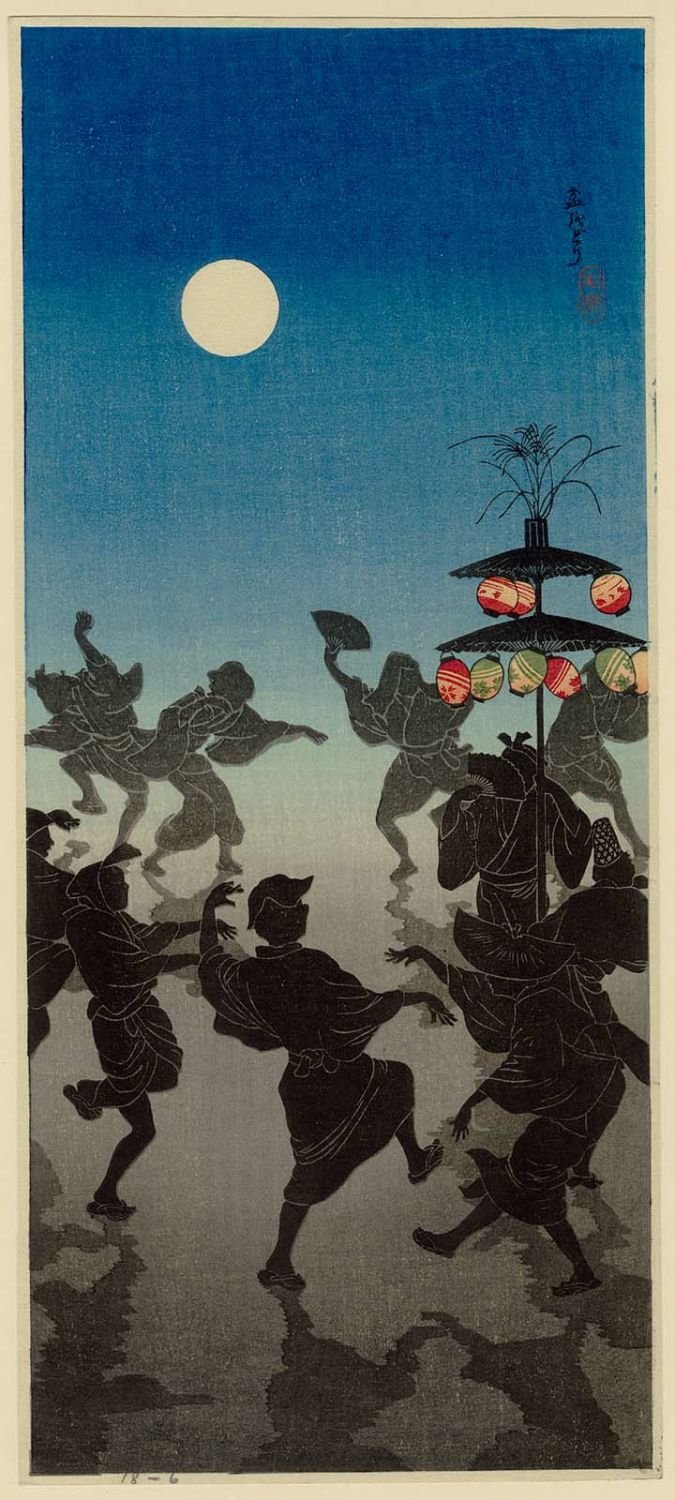It's Obon, Japan's ghost festival. Around 100 years ago on another Obon, Santōka wrote:
uchi no yōna yoso no yōna obon no tsukiyo
a moonlit Obon night
—Santōka


Obon is a three day festival in Japan when the dead ancestors of a family come back to visit. It is a time for celebration and there are many festival events for the entire period, culminating in a large community dance, called bon odori. It's a fun event, not entirely dissimilar from Mexico's Day of the Dead
There is a unique feeling in the air during Obon nights. The boundaries between this world and the next feel blurred and the night air has a certain feeling that enhances this mysterious time.
Santōka was writing this haiku from his hermitage. He might have been being simply matter-of-factly pointing out that the Obon moon was the same for him alone at his hermitage as for all the people doing bon odori at the shrine. Given the festival, he might have also been commenting about this world (here) and the next (elsewhere). You decide!
That is, me! If you like this translation, feel free to use it. Just credit me. Also link here if you can. ↩